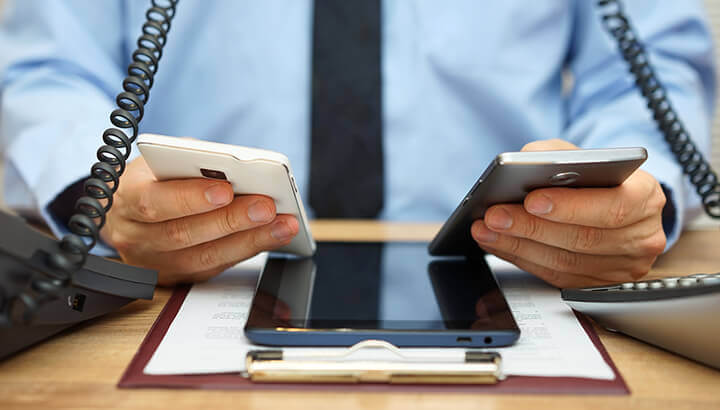
At first glance, it may seem like our reliance on technology increases our productivity. While this is true in some ways, such as increased ability to communicate around the globe, staying “plugged in” all the time may actually hamper productivity in the long run. Technology is highly useful to us if we use it when we need to, and then allow ourselves time away. In this case, the phrase “too much of a good thing” is apt.
Why I need to unplug from technology
Have you ever noticed that spending too long scrolling through social media without looking up leads to brain fog and sometimes a headache? Maybe it’s just me, but I’ve found myself sitting up from a few minutes of mindless Facebook scrolling and having to get up and walk off a headache more than a few times. It’s a great tool to stay connected, but I try not to spend too much time on it. I find that I feel much better when I allow myself to regularly unplug from technology.
I work from home as a writer, so my work weeks consist of sitting at my computer desk and writing articles. Throughout the day, I find that taking breaks from sitting in front of the computer makes me more focused and more productive with my work. I like to get up from my desk chair at least every half an hour and walk around my house. I stretch my legs, I clear my head, I take some deep breaths, maybe make some coffee. If I don’t take breaks from the screen, my mood and my productivity suffer. Also, I take evening hours off to spend with my family. This refreshes me for the next day.
If you’re anything like me, you’ll benefit from unplugging from technology as well. Here is a look at what science says on the topic.
The science of unplugging
There is a body of research pointing to the fact that we humans are healthier when we are able to take breaks from our devices, especially in the evening. The following are a few researched benefits of unplugging:
Less stress
If you’re constantly checking (and maybe responding to) work messages late into the evening, your mind is not able to get out of “work mode” and you may never get fully relaxed. This can lead to a whole lot of stress and no time to relieve it. Research has found that down time after the work day is essential for the mind to be able to recharge. This also allows us time to unwind from the stresses of the day.
Relief from anxiety

I am a naturally anxious person, and when I don’t give myself time to unplug from both work and social media, I find that my anxiety worsens. Specifically, if I’ve gone too long without a media break, I find that I get tense and my thoughts begin racing. It’s a sure sign that I need to unplug, get up and move around. Shake off the screen time, if you will.
There are many reports that spending significant time away from technology, such as on a camping trip, can lead to a reduction in anxiety symptoms, and an overall feeling of peace and harmony with nature. On a trip she took through the Amazon jungle with other scientists at the California Academy of Sciences, Meg Lowman wrote:
“Disconnected from the electronic devices that tend to eat up so much of our time and energy back home, our team of 28 citizen scientist volunteers reconnected with nature while in the Amazon… We came home much wiser — not only with new knowledge about the scientific secrets of the Amazon forest canopy, but also how to live our lives more fully with Mother Nature as our mentor.”
Active engagement with others
There is evidence that suggests that staying glued to our smartphones may keep us from interacting with those around us. On the effect of cell phones on prosocial behavior, the authors of a 2012 study performed by the University of Maryland wrote:
“The widespread adoption of mobile phones has dramatically increased people’s ability to connect to others. We argue that mobile phone use evokes feelings of social connectedness to other people and fulfills the need to belong or affiliate. This subsequently decreases the need for further affiliation and lowers concern for other people.”
In short, if you’re on your phone, you’re not really paying attention to those around you. Even if you’re still engaging with them, you’re not giving them your full presence.
Greater concentration

If you’re constantly on your phone, computer or iPad, you’re probably not able to fully concentrate on much else. Research has suggested that even if you think you’re a great multitasker, you’re probably not doing as good of a job as you think you are. Most things are best done by giving them your full attention.
Better sleep
If you’re plugged into technology late into the night, you’re probably not getting enough sleep. This is a problem, as sleep is absolutely crucial to both physical and mental health.
Enhanced creativity
Giving your brain the space to wander, without a screen in front of your eyes, may help to improve your creativity, according to some research. It makes sense: when your brain is swimming with other things, it doesn’t have room to be creative. Creativity requires the mind to be present and open in order to grab onto inspiration when it comes.
So, if you want to be productive at work, and to feel better overall, consider shutting down the work email after work hours, and seriously limiting your time on social media. Give it a try for a week — you may be surprised at how your life, and your outlook on life, changes.
— Tanya Mead

